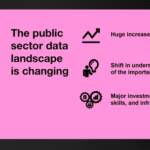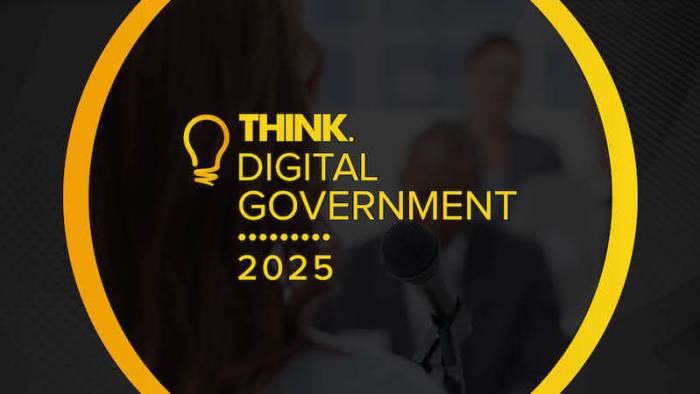
Data needs to be the starting point in any digital transformation, not an afterthought.
That was one of the key conclusions from Wednesday’s THINK Data for Government virtual event.
An expert panel discussed the importance of building a view of the data within the organisation. Also, they noted such an undertaking is a marathon, it’s not a sprint. Transformation is not an outcome that can be delivered, overnight, even within a few months, they said.
It should also be a collaborative process, embracing a shared infrastructure, culture, and getting everyone in the organisation to buy into and commit to the learning process around data.
Hosted by Jessica Figueras, vice-chair, UK Cyber Security Council, here are some other key findings from the event:
Predictive analytics
There’s often a public discourse around the possibilities of using advanced technologies to do things like automated decision making. This includes the idea that we could use data, and machine learning, to predict where issues may arise to intervene early in public health, or social work. However, panellists discussed the vision of making sophisticated decisions with algorithms, at scale, and a cost efficient way, in contrast to ethical concerns.
We also heard about how these technologies and data are being used in some of the largest government departments, and it was made clear there was no appetite for automated decision making in government. However, there is interest in in augmented decision making. So while we use data and analytics to support humans to make better decisions, it’s very much a ‘human in the loop’ process.
If you liked this content…
Privacy
We know that public bodies have duties around privacy and data protection, just like the private sector. But it’s clear that the privacy challenge in the public sector is taking place in a much wider societal debate about the role of data and how it affects the individual citizen. The privacy landscape is evolving rapidly, and the legislative framework almost certainly has to change to keep up with it. The public sector must also put public benefit and the citizen at the centre of any policy.
Data skills
It’s clear that the need to get more skilled people into public sector is a significant barrier. The experts acknowledged it is difficult to compete with the private sector in terms of salaries. But we also heard that this is not a question of not just ‘getting bums on seats’. It is again about being able to use data effectively and building a shared understanding about the role of data within an organisation. It is not just about individual upskilling; it’s about upscaling the organisation – and the public sector – as a whole. It is about building a data culture and a data community.
Geospatial
Here the panel of experts revealed how geospatial data isn’t a special type of data that can only be worked by geographers and needs to be kept closely guarded within a particular community. In fact, it has a massively ubiquitous application. We heard that when we see it as just as something to do with geography and geographers, we run into problems.
Geospatial data enables us to take a holistic view linking many different fields, whether that’s tourism, health, or the environment. Geospatial data and analysis also offers huge potential around both the net zero and levelling up agenda, and as a growth engine for the economy. However, this isn’t just a case of ‘build it and they will come’. It’s clear that government has a specific role to play in terms of convening, and making things happen.
Ultimately, we heard that people need to get focused on specific problems and outcomes. We need to build communities that are able to learn together and to put what they’ve learned into practice.
Registered attendees can still access the content via the link in their invitation for up to 180 days.







